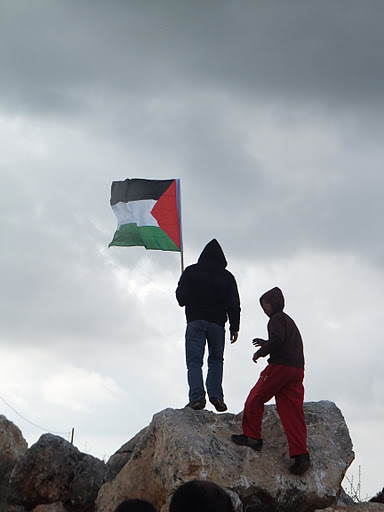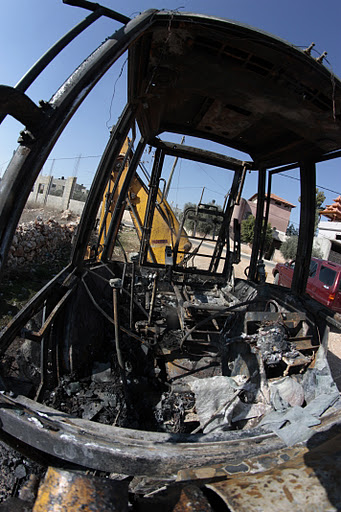Tag: Salfit
-
Curfew imposed on Kifl Hares as settlers invade
21 December 2012 | International Solidarity Movement, Kifl Haris, Occupied Palestine At around 9.30pm last night several Israeli Army vehicles entered the village of Kifl Haris as they do many times every year. They immediately imposed a strict unannounced curfew. The Israeli military tell nobody this will happen, nobody can leave their homes, nobody is…
-
In Photos: The devastation of the Price Tag campaign in Bruqin
by Amal 8 December 2011 | International Solidarity Movement, West Bank The smell of fire and sorrow was evident in Bruqin today, which is located to the west of Salfit in the northern area of the West Bank. Even eight hours later the feeling of loss populated the air. At approximately 2:30 AM a group of…


